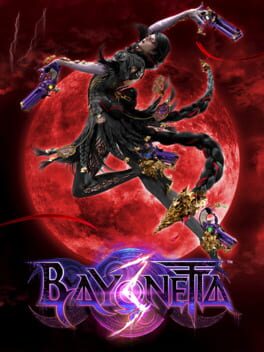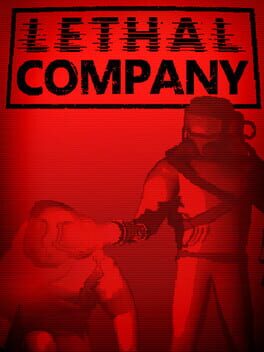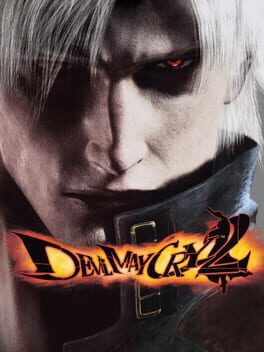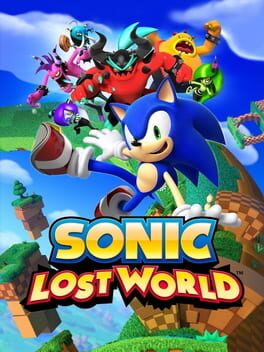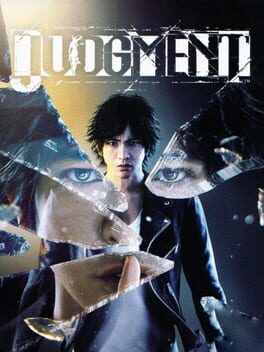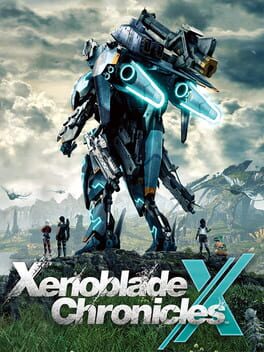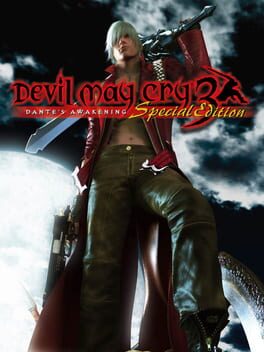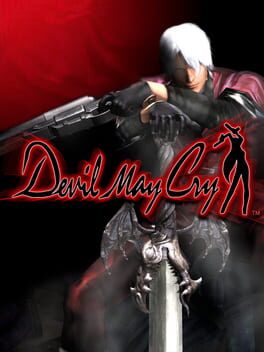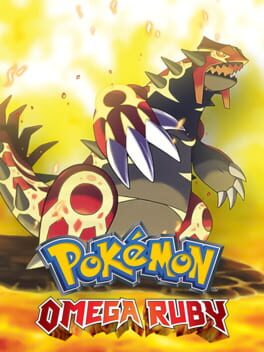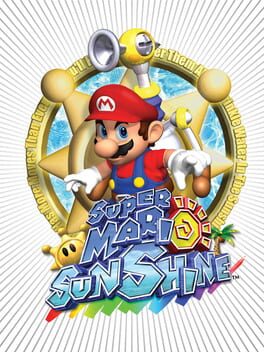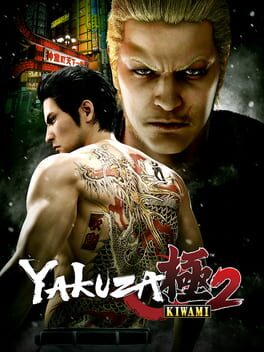This review contains spoilers
Nier Replicant is a masterpiece, and one of the greatest games of all time. It's a celebration of video games as a medium, and it explores the unique ways it can tell a story that truly cannot be offered through any other platform.
Nier sets your expectations using well known video game tropes, only to completely flip everything on its head. In many ways, Nier is a deconstruction of popular games that have been central to the industry. It's structured very similarly to Ocarina of Time, in some really interesting ways. You start out as a young boy, set out on a mythical journey to gather the Sealed Verses, which will allow you to confront the antagonist of the story. A clear parallel to Ocarina of Time, where you gather the spiritual stones, only to inadvertently help the main antagonist, Ganondorf, who plunges the world into ruin, and you come back as an adult years later, stronger and more prepared this time, and having to clean up the mess you helped cause. Hell -- story aside, this game even has block puzzles and a big field reminiscent of Hyrule Field. There's also a segment in a forest where your senses are taken away, you're lost and forced to rely on only one visual stimuli to progress. In Ocarina of Time, this was the Lost Woods where you're supposed to navigate by paying attention to sound. In Nier's Forest of Myth, you are instead forced to read rather than listen, and guides will not help you here.
Nier Replicant does something very similar to Ocarina's story, but actually explores it in a more realistic way, and what such a state of affairs would do to the world and the people inhabiting it -- and shows just what other people would think of someone doing all of this. Nier Replicant is filled with grey morality like this. There's no true heroes or villains here, everyone has their own motives, some more admirable than others, and the most evil people in this story are people who are long dead and cannot be stopped, since they set events into motion hundreds of years ago and are not here to see the results of their plans. There are parallels to other games like Resident Evil, but I think the clearest thing here you're supposed to notice is this game's almost parody-like take on Ocarina of Time, and other popular JRPGs like Kingdom Hearts.
One important thing to note here is the gameplay, which is tied very strongly to the narrative. Combat is fast and fluid like Nier Automata, and has modern innovations like a proper lock-on system. However, it's not as deep as something like Devil May Cry, instead relying more on the RPG mechanics -- which is totally okay! Nier suits a large variety of playstyles. You can use item buffs like a standard RPG, you can be slow and methodical like a Souls game, parrying to win, or you can play this like it's a Platinum game and dodge your way to victory. There's also a mechanic called the sidestep, which is like the Reversal from Kingdom Hearts 2 but way cooler. Nier feels more grounded and realistic than Automata, but is still fun to play, which is good. There's a disturbing element to the combat as well, in how well the blood effects are done, the enemies making sounds that almost sound child-like when they die -- plus your magic death book absorbing the blood of your enemies to use spells. It's all very masterfully designed, and in my opinion, an improvement over Automata, which felt much less accessible to multiple playstyles, as it was more like a typical Platinum character action game with tacked-on RPG mechanics that felt redundant. The presentation of Replicant is also very well done, which is a nice cherry on top for the game. On an HDR TV, the game looks hauntingly beautiful. Many of the quirks from the original game like the dramatic bloom is carried over, just executed in a more appetizing way.
Nier is a story of humanity itself, touching on everything good and bad about people and the footprint we've left on this speck of rock in the vast emptiness of space. With the constant reminders of how little about the world is out of our control, it's so easy to experience feelings of nihilism, hopelessness, and impending doom. One day, humanity will probably end -- but what's important in life isn't how your life goes out, but how you lived it, and how you impacted other people's lives. In much of the conversation around these games by Yoko Taro, so much focus is put on the multiple endings, the ultimate fate of the characters, etcetera. Nier Replicant is a reminder of how important the journey through life is -- and how vital it is to learn to understand other people, other cultures, other ways of life, no matter how outlandish other people might seem, even if they speak a different language, or they don't look like us. Human connection is a concept that is constantly played around with, whether it's through the story's exploration of language, the choice to sever your connection with the world, and ultimately your friends by erasing your existence. How far will people go to maintain what gives their life meaning -- and, in the process, lose themselves? So often in media, self sacrifice is painted as a noble, heroic trope, but in Nier Replicant, all of the ugly aspects of sacrifices are shown. By choosing to erase yourself, the remaining cast suffers without you, having constant nightmares, crying when they think about you, even your sister, who you fought so hard to save, weeps over something she doesn't understand in her diary that can be read in the E route's loading screen, because you didn't even allow her the solace of understanding why she's traumatized. Everyone in Nier Replicant is so self absorbed and convicted in their beliefs, that they rarely ever stop to question what they're doing, if there's a better way to go about things, or if they can find a mutual understanding with their enemies. When the protagonist, Nier, spends so much time trying to cure his sister's disease, that he becomes obsessed to the point of risking death, chasing mythological, questionable leads, he forgets that all his sister really wants is to see her brother more, and spend time with the only family she has left. Nier is filled to the brim with tragedy like this, but as you're constantly reminded throughout the game -- it's too late to stop and dwell on your mistakes. Trying to save the world on your own and fight things out of your control can ultimately be fruitless, and filled with nothing but tragedy. However, there's always time to change course and focus on what really matters. Spend time with the people important to you. Try to understand people different from you. Don't allow your preconceived prejudices to cloud your judgment of strangers. Even if the world goes to hell, as long as you have your friends, you can find meaning, and worth, in your life. This is Nier, and it is one of my favorite games of all time.
I'm not used to writing reviews like this, so this might be all over the place, but I just wanted to let my thoughts spill out, because I had a lot of them after finishing the game. :)
Nier sets your expectations using well known video game tropes, only to completely flip everything on its head. In many ways, Nier is a deconstruction of popular games that have been central to the industry. It's structured very similarly to Ocarina of Time, in some really interesting ways. You start out as a young boy, set out on a mythical journey to gather the Sealed Verses, which will allow you to confront the antagonist of the story. A clear parallel to Ocarina of Time, where you gather the spiritual stones, only to inadvertently help the main antagonist, Ganondorf, who plunges the world into ruin, and you come back as an adult years later, stronger and more prepared this time, and having to clean up the mess you helped cause. Hell -- story aside, this game even has block puzzles and a big field reminiscent of Hyrule Field. There's also a segment in a forest where your senses are taken away, you're lost and forced to rely on only one visual stimuli to progress. In Ocarina of Time, this was the Lost Woods where you're supposed to navigate by paying attention to sound. In Nier's Forest of Myth, you are instead forced to read rather than listen, and guides will not help you here.
Nier Replicant does something very similar to Ocarina's story, but actually explores it in a more realistic way, and what such a state of affairs would do to the world and the people inhabiting it -- and shows just what other people would think of someone doing all of this. Nier Replicant is filled with grey morality like this. There's no true heroes or villains here, everyone has their own motives, some more admirable than others, and the most evil people in this story are people who are long dead and cannot be stopped, since they set events into motion hundreds of years ago and are not here to see the results of their plans. There are parallels to other games like Resident Evil, but I think the clearest thing here you're supposed to notice is this game's almost parody-like take on Ocarina of Time, and other popular JRPGs like Kingdom Hearts.
One important thing to note here is the gameplay, which is tied very strongly to the narrative. Combat is fast and fluid like Nier Automata, and has modern innovations like a proper lock-on system. However, it's not as deep as something like Devil May Cry, instead relying more on the RPG mechanics -- which is totally okay! Nier suits a large variety of playstyles. You can use item buffs like a standard RPG, you can be slow and methodical like a Souls game, parrying to win, or you can play this like it's a Platinum game and dodge your way to victory. There's also a mechanic called the sidestep, which is like the Reversal from Kingdom Hearts 2 but way cooler. Nier feels more grounded and realistic than Automata, but is still fun to play, which is good. There's a disturbing element to the combat as well, in how well the blood effects are done, the enemies making sounds that almost sound child-like when they die -- plus your magic death book absorbing the blood of your enemies to use spells. It's all very masterfully designed, and in my opinion, an improvement over Automata, which felt much less accessible to multiple playstyles, as it was more like a typical Platinum character action game with tacked-on RPG mechanics that felt redundant. The presentation of Replicant is also very well done, which is a nice cherry on top for the game. On an HDR TV, the game looks hauntingly beautiful. Many of the quirks from the original game like the dramatic bloom is carried over, just executed in a more appetizing way.
Nier is a story of humanity itself, touching on everything good and bad about people and the footprint we've left on this speck of rock in the vast emptiness of space. With the constant reminders of how little about the world is out of our control, it's so easy to experience feelings of nihilism, hopelessness, and impending doom. One day, humanity will probably end -- but what's important in life isn't how your life goes out, but how you lived it, and how you impacted other people's lives. In much of the conversation around these games by Yoko Taro, so much focus is put on the multiple endings, the ultimate fate of the characters, etcetera. Nier Replicant is a reminder of how important the journey through life is -- and how vital it is to learn to understand other people, other cultures, other ways of life, no matter how outlandish other people might seem, even if they speak a different language, or they don't look like us. Human connection is a concept that is constantly played around with, whether it's through the story's exploration of language, the choice to sever your connection with the world, and ultimately your friends by erasing your existence. How far will people go to maintain what gives their life meaning -- and, in the process, lose themselves? So often in media, self sacrifice is painted as a noble, heroic trope, but in Nier Replicant, all of the ugly aspects of sacrifices are shown. By choosing to erase yourself, the remaining cast suffers without you, having constant nightmares, crying when they think about you, even your sister, who you fought so hard to save, weeps over something she doesn't understand in her diary that can be read in the E route's loading screen, because you didn't even allow her the solace of understanding why she's traumatized. Everyone in Nier Replicant is so self absorbed and convicted in their beliefs, that they rarely ever stop to question what they're doing, if there's a better way to go about things, or if they can find a mutual understanding with their enemies. When the protagonist, Nier, spends so much time trying to cure his sister's disease, that he becomes obsessed to the point of risking death, chasing mythological, questionable leads, he forgets that all his sister really wants is to see her brother more, and spend time with the only family she has left. Nier is filled to the brim with tragedy like this, but as you're constantly reminded throughout the game -- it's too late to stop and dwell on your mistakes. Trying to save the world on your own and fight things out of your control can ultimately be fruitless, and filled with nothing but tragedy. However, there's always time to change course and focus on what really matters. Spend time with the people important to you. Try to understand people different from you. Don't allow your preconceived prejudices to cloud your judgment of strangers. Even if the world goes to hell, as long as you have your friends, you can find meaning, and worth, in your life. This is Nier, and it is one of my favorite games of all time.
I'm not used to writing reviews like this, so this might be all over the place, but I just wanted to let my thoughts spill out, because I had a lot of them after finishing the game. :)
2022
This review contains spoilers
Combat is great, when the game actually lets you engage in it. Bayonetta feels the best she's ever felt here, and the weapons in this game are amazing. One of them is a shameless rip-off of DMC5's motorcycle weapon, but that's ok, because it's fun to use! Viola is also pretty fun, but just feels a little unfinished, and she only has a few chapters so you don't spend much time with her. Here's where the positives end, because literally the only good things about this game is the combat and art direction (which is good! I mean, the framerate is crap, but the resolution is 900p and the special effects can look pretty cool. Aside from the grey city and Halo 1 island at the start of the game, the rest of the game can look quite pretty.)
HOWEVER, the game is filled to the brink with minigames, and it is just insanely overkill. I say this as someone who enjoyed the ones in Bayonetta 1! In Bayonetta 2, minigame sections were toned down and basically just there to give yourself a break to breathe. in 3, holy crap, there are so many, everywhere, back to back. Many of them feel terrible to control, are boring, and most of the time just feel like generic AAA set pieces with no flavor. Some of them are so bad it's offensive. I'm not sure who looked at the Spider summon and decided he deserved a godawful PS1 bootleg platformer section, but that was so bad it should be considered a hate crime.
The campaign is structured in an episodic format, with you going to a universe, getting a MacGuffin, and leaving after confronting the Big Bad of this game, to fight him again later. Here's the thing....you NEVER get an honest to god, real boss fight with this antagonist until the very end of the game. You do get to fight him, but only through minigames! Excited for the big confrontation with this scumbag? Nah, here's a rhythm game. Nah, here's a bubble bath minigame. What?
The only boss fight in this game that's actually quite fun is with the new rival character, Strider, but his placement in the campaign is sporadic and sparse. This leads to a really bad pacing issue going through the campaign, where things are just randomly thrown around in random places and nothing ever gets to feel particularly satisfying about Bayonetta's journey through the game. This is capped off by one of the worst final chapters in any action game, ever, which is filled with minigames, a boss fight with an adds phase like a typical AAA game, and a terrible, unfulfilling drawn out fight with the Big Bad. It felt like I was back on Namek waiting for 5 minutes to pass before it blew up, or I was fighting Perfect Cell and watching him get back up with asspull after asspull after you think he's beat, then he's not, then he is, then he's not. Then the ending comes, then a crappy boss fight comes, then the ending comes for real.
Story is also one of the worst video game stories I've ever seen in my life. It feels like a really, really bad fanfiction. Like, I'm talking 10 year old's first fanfiction.net story bad. Luka is literally only in this story to breed and die, Jeanne dies to the most obvious backstabbing of all time after accomplishing nothing and dooming the entire world, the Big Bad is a literal nobody who literally has no motivations, he is just evil to be evil, Bayonetta feels weirdly serious and out of character, the writing feels like a weird Kingdom Hearts parody written by people who hate Kingdom Hearts, and everyone dies, every universe dies, fuck you, Bayonetta is over, it's Viola's game now, Bayonetta 4 coming soon, please look forward to it, we really didn't want to make this game!
HOWEVER, the game is filled to the brink with minigames, and it is just insanely overkill. I say this as someone who enjoyed the ones in Bayonetta 1! In Bayonetta 2, minigame sections were toned down and basically just there to give yourself a break to breathe. in 3, holy crap, there are so many, everywhere, back to back. Many of them feel terrible to control, are boring, and most of the time just feel like generic AAA set pieces with no flavor. Some of them are so bad it's offensive. I'm not sure who looked at the Spider summon and decided he deserved a godawful PS1 bootleg platformer section, but that was so bad it should be considered a hate crime.
The campaign is structured in an episodic format, with you going to a universe, getting a MacGuffin, and leaving after confronting the Big Bad of this game, to fight him again later. Here's the thing....you NEVER get an honest to god, real boss fight with this antagonist until the very end of the game. You do get to fight him, but only through minigames! Excited for the big confrontation with this scumbag? Nah, here's a rhythm game. Nah, here's a bubble bath minigame. What?
The only boss fight in this game that's actually quite fun is with the new rival character, Strider, but his placement in the campaign is sporadic and sparse. This leads to a really bad pacing issue going through the campaign, where things are just randomly thrown around in random places and nothing ever gets to feel particularly satisfying about Bayonetta's journey through the game. This is capped off by one of the worst final chapters in any action game, ever, which is filled with minigames, a boss fight with an adds phase like a typical AAA game, and a terrible, unfulfilling drawn out fight with the Big Bad. It felt like I was back on Namek waiting for 5 minutes to pass before it blew up, or I was fighting Perfect Cell and watching him get back up with asspull after asspull after you think he's beat, then he's not, then he is, then he's not. Then the ending comes, then a crappy boss fight comes, then the ending comes for real.
Story is also one of the worst video game stories I've ever seen in my life. It feels like a really, really bad fanfiction. Like, I'm talking 10 year old's first fanfiction.net story bad. Luka is literally only in this story to breed and die, Jeanne dies to the most obvious backstabbing of all time after accomplishing nothing and dooming the entire world, the Big Bad is a literal nobody who literally has no motivations, he is just evil to be evil, Bayonetta feels weirdly serious and out of character, the writing feels like a weird Kingdom Hearts parody written by people who hate Kingdom Hearts, and everyone dies, every universe dies, fuck you, Bayonetta is over, it's Viola's game now, Bayonetta 4 coming soon, please look forward to it, we really didn't want to make this game!
2023
2014
2003
The infested chopper boss is the single greatest boss in all of video gaming. Devil May Cry 2 is already known as one of the greatest of all time (GOAT factor = high on this one), but the infestation that plagues the cities of Devil May Cry 2 allows for an extremely emotionally-complex character set. The infestation is a manifesto of our society and the zombie-like enthusiasm we take in our militarism, which is a great moral leap backwards. It spreads to the masses, and the military continues to kill. In that sense, the Infested Chopper boss fight is something more. You fight it once and it takes forever to beat. This mimics the reality of persuading a military enthusiast in real life - it takes forever. Then, the more you fight the choppers, you realize that the mission of beating them all is impossible. It is a grim fate that only Devil May Cry 2 can convey accurately. In other words, the infested chopper is definitively the single greatest boss fight in gaming and represents all of society's fears, which tells many stories which are incomprehensibly deep.
2013
Coming off of Generations, this is one of the most disappointing Sonic games I've played. The series was really going places, just for it all to be thrown away for some weird experimental title. This is where the rut Modern Sonic is currently in started. It's a shame this game is not so great, because the parkour system is actually really interesting and could be a neat mechanic in future games. Everything else weighs the game down, though, which doesn't give the parkour system any room to shine.
2024
This review contains spoilers
I've played Persona 3 before, but it was a really long time ago-- over ten years now. My memory of the game was a bit scattered, so playing Reload felt like I was playing Persona 3 for the first time all over again.
At its core, this is still Persona 3, just with additions that enhance the game rather than detracting from it. There's new activities at night, new shops, hang out events with SEES, and even new social links (in everything but name) with the male party members, and they are some of the best party member "social links'' in the series, because they are able to play off of the main story. There's no weird sense of disconnect like some of the other party member social links in the series. Shinji's link episodes are especially a highlight, and it does so much to uplift that section of the narrative to even greater heights than before.
Tartarus was noted as a pain point of the original game. Portable's approach to this was changing the battle system and adding some new ways of dealing with fatigue. In Reload, while direct control is here and the fatigue system is back, the part that actually made Tartarus boring in the original, the dungeon crawling, is addressed. There's tons of new gimmicks, new side areas, and new area layouts. At its core, Tartarus is still the same randomized dungeon crawler it was in the original, but instead of being thrown away for something more like Persona 4 or 5, Atlus saw the value in the original concept and decided to expand on it.
On a Merciless playthrough, the game starts out quite difficult. I had to carefully manage my SP, and think carefully about fusing due to a lack of money for summoning from the compendium. I finished the first block of Tartarus in one day, but it took a great deal of agonizing over resource management. This, I thought, was a perfect solution to removing stamina. However, this was really only true for the first block. When you get Akihiko, that's another party member, which is another pool of SP to use as a resource. By now, you probably have plenty of SP restoring items, and two of your party members use physical skills, which cost HP and not SP, which is a much easier resource to recoup as healing items are plentiful. Then in the next block, you get Mitsuru, Fuuka and Theurgies, and the game becomes the easiest it gets for a while, because the game is just constantly throwing free things at you so you never have to worry about resources. So, resource management, while starting off strong, becomes a disappointment unfortunately, and it's something I hope is addressed in a later Persona game.
In terms of the actual battle system, while this is building off of Persona 5 Royal, it feels like a more reasonable version of it. While technical hits are gone, you can get something similar by having Mitsuru in your party, creating synergy between phys skills and status effects with your critical hit being increased if attacking an enemy inflicted with an ailment. Traits are back, sort of, but are tied to characters rather than Personas. Baton Pass, now renamed Shift, is actually nerfed, but if you want perks like boosting your attack after a Shift like how it worked in Persona 5 Royal, that is now a separate ability that has to be inherited in Persona fusion, or equipped via an accessory. Theurgies are essentially what Showdowns were in Royal, but now are tied to a gauge with per-character mechanics for building gauge, no longer being random, and you actually lose gauge if a character gets KO'd.
Navi assists are also not quite as random, and not quite as OP. A lot of what Futaba would just do on her own, randomly, are now skills you can freely cast with Fuuka, but cost SP. In-battle assists are now tied to Fuuka's theurgy gauge, and if you know what you're doing, you can actually manipulate RNG to get the desired buffs from her. If you want healing, save the assist for when your HP/SP gets low. If you want buffs, make sure you're at full HP first. It's a very cool, useful system compared to P4 and P5 where you just pray your Navi will do something useful sometimes.
While the resource management aspect is lacking, I did find myself blindsided by some of the boss fights in Merciless. The first full moon operation is insanely tough, and some of the Monad fights are just brutal. Elizabeth, thankfully, lives up to the nightmare that she was in the original game. Ailments in particular, are just insanely brutal now and bring a lot of the challenge, while in older Persona games they were pretty whatever. (Aside from the occasional charm moment...)
I don't think there's much I can say about the story that hasn't already been said by others, and I think the game sends its message pretty clearly. So, I think I'll talk about some of the changes. The new English VA is an improvement across the board. While there were some good actors in the original, the direction is a bit stilted, and it felt like actors were sometimes missing context, while in the worst cases of the original dub, there were some pretty clear miscasts, some even hurting the reputations of certain characters (Fuuka...). While I think some of those old actors are much better now and would've killed it in a redub, I think the new cast, and new acting, elevates the story to new heights and does a much better job of matching the emotion of the original japanese performances.
I know a lot of people are upset about the lack of a FeMC, I really didn't care and I'll explain why. The FeMC changes too much about the game. Her route completely changes too much of the story, the artistic identity of the game, and there are ways that the devs would have been limited if they were to bring her back as she was in Portable. The Link episodes likely wouldn't have existed and we would have lost some amazing writing, and I vastly prefer what we got in Reload over what some of Portable does, such as how it changed the ending or how needlessly, worryingly fanservicey it got at times (Ken....), or the uncomfortable implications of how much it ties to gender, like the OST changes and the UI...are girls not allowed to like rap, or the color blue? It just feels gross and ignorant to the real world. I would be happy to have a FeMC in future Personas, but please, just handle it like a normal, rational RPG, you don't have to change the entire game top to bottom to account for a different gender. Persona already has an audience of girls that like it for what it is, throwing everything about the male MC away to be changed so heavily is a total misunderstanding of your audience. I know my perspective might seem biased as a man, but I have never really played these games for the self-insert aspect, I see the protagonist as their own, separate character with a distinct identity. Roleplaying =/= self-inserting.
The new Strega elements were pretty cool. I think Jin and Takaya have a much more interesting dynamic now, with them being shown to use Shift just like your own party. Takaya as a villain, while not changed that much really, is just a lot cooler now, while in the original I felt he was a bit forgettable. Chidori is a highlight just like in the original. Interestingly, the FES change of being able to revive Chidori is kept. I actually didn't really mind this, there are still consequences of what happened with her having amnesia, and for a game filled with so much tragedy, I think it's okay for SEES to get just one W for once. Also, if you read into Junpei being inspired by Cloud, I then find the dynamic with Chidori to be an interesting reflection of Cloud and Aerith, and therefore being able to revive Chidori reminds me of some of the old video game rumors of being able to revive Aerith if you do some ridiculous stuff -- so in Reload, having to do some fairly convoluted things to bring Chidori back is a cool secret, something that used to be really common in video games. Looking back at FES, I wonder if there were similar rumors in the Japanese fanbase about being able to bring Chidori back, and the ability to do so being added in FES as an answer to that?
Ikutsuki was a character that unfortunately disappointed me. I was hoping that maybe he'd get some Link episodes, or hangout events, but he got pretty much nothing. For a game that is all about fleshing out underdeveloped elements, this felt like a big oversight to me. Ikutsuki, seeing himself as a savior, in his own twisted little mind I do believe he had some sort of fatherly affection for SEES, and I do think he genuinely, at least from his warped perspective, had good intentions for SEES, which is why he shows disappointment when they don't understand why he would want to bring about the Fall. I think this betrayal would have hit a lot harder if we actually got to spend time with him as a friend. The Persona series often has this trope of a character with a dorky side betraying you, like with Adachi and Akechi. While we got to spend time with those characters in those games, especially in their re-releases, we didn't get much with Ikutsuki.
Persona 3 is a game about life and death, and Reload feels like, after a long parting, looking through a picture book and having vivid memories of the life of a dear friend, wondering what sort of life they could have lived if things went a little differently in their life. But at the end of the day, they are still who they were, no matter how long it's been. Life has infinite potential, but with death, while that potential ends, a memory is created that lives on to inform everyone that life touched. As long as their memory is alive, they can still live on and inspire new people on their own journeys, and through that they are never truly gone. I think P-Studio has learned a lot from revisiting its old work, with Reload being the culmination of everything in modern Persona works, and just like 3 it will inform future games and become the new standard to live up to. It's not a perfect, flawless game, but idgaf 10/10 BABYBABYYYYYYYYYYY
At its core, this is still Persona 3, just with additions that enhance the game rather than detracting from it. There's new activities at night, new shops, hang out events with SEES, and even new social links (in everything but name) with the male party members, and they are some of the best party member "social links'' in the series, because they are able to play off of the main story. There's no weird sense of disconnect like some of the other party member social links in the series. Shinji's link episodes are especially a highlight, and it does so much to uplift that section of the narrative to even greater heights than before.
Tartarus was noted as a pain point of the original game. Portable's approach to this was changing the battle system and adding some new ways of dealing with fatigue. In Reload, while direct control is here and the fatigue system is back, the part that actually made Tartarus boring in the original, the dungeon crawling, is addressed. There's tons of new gimmicks, new side areas, and new area layouts. At its core, Tartarus is still the same randomized dungeon crawler it was in the original, but instead of being thrown away for something more like Persona 4 or 5, Atlus saw the value in the original concept and decided to expand on it.
On a Merciless playthrough, the game starts out quite difficult. I had to carefully manage my SP, and think carefully about fusing due to a lack of money for summoning from the compendium. I finished the first block of Tartarus in one day, but it took a great deal of agonizing over resource management. This, I thought, was a perfect solution to removing stamina. However, this was really only true for the first block. When you get Akihiko, that's another party member, which is another pool of SP to use as a resource. By now, you probably have plenty of SP restoring items, and two of your party members use physical skills, which cost HP and not SP, which is a much easier resource to recoup as healing items are plentiful. Then in the next block, you get Mitsuru, Fuuka and Theurgies, and the game becomes the easiest it gets for a while, because the game is just constantly throwing free things at you so you never have to worry about resources. So, resource management, while starting off strong, becomes a disappointment unfortunately, and it's something I hope is addressed in a later Persona game.
In terms of the actual battle system, while this is building off of Persona 5 Royal, it feels like a more reasonable version of it. While technical hits are gone, you can get something similar by having Mitsuru in your party, creating synergy between phys skills and status effects with your critical hit being increased if attacking an enemy inflicted with an ailment. Traits are back, sort of, but are tied to characters rather than Personas. Baton Pass, now renamed Shift, is actually nerfed, but if you want perks like boosting your attack after a Shift like how it worked in Persona 5 Royal, that is now a separate ability that has to be inherited in Persona fusion, or equipped via an accessory. Theurgies are essentially what Showdowns were in Royal, but now are tied to a gauge with per-character mechanics for building gauge, no longer being random, and you actually lose gauge if a character gets KO'd.
Navi assists are also not quite as random, and not quite as OP. A lot of what Futaba would just do on her own, randomly, are now skills you can freely cast with Fuuka, but cost SP. In-battle assists are now tied to Fuuka's theurgy gauge, and if you know what you're doing, you can actually manipulate RNG to get the desired buffs from her. If you want healing, save the assist for when your HP/SP gets low. If you want buffs, make sure you're at full HP first. It's a very cool, useful system compared to P4 and P5 where you just pray your Navi will do something useful sometimes.
While the resource management aspect is lacking, I did find myself blindsided by some of the boss fights in Merciless. The first full moon operation is insanely tough, and some of the Monad fights are just brutal. Elizabeth, thankfully, lives up to the nightmare that she was in the original game. Ailments in particular, are just insanely brutal now and bring a lot of the challenge, while in older Persona games they were pretty whatever. (Aside from the occasional charm moment...)
I don't think there's much I can say about the story that hasn't already been said by others, and I think the game sends its message pretty clearly. So, I think I'll talk about some of the changes. The new English VA is an improvement across the board. While there were some good actors in the original, the direction is a bit stilted, and it felt like actors were sometimes missing context, while in the worst cases of the original dub, there were some pretty clear miscasts, some even hurting the reputations of certain characters (Fuuka...). While I think some of those old actors are much better now and would've killed it in a redub, I think the new cast, and new acting, elevates the story to new heights and does a much better job of matching the emotion of the original japanese performances.
I know a lot of people are upset about the lack of a FeMC, I really didn't care and I'll explain why. The FeMC changes too much about the game. Her route completely changes too much of the story, the artistic identity of the game, and there are ways that the devs would have been limited if they were to bring her back as she was in Portable. The Link episodes likely wouldn't have existed and we would have lost some amazing writing, and I vastly prefer what we got in Reload over what some of Portable does, such as how it changed the ending or how needlessly, worryingly fanservicey it got at times (Ken....), or the uncomfortable implications of how much it ties to gender, like the OST changes and the UI...are girls not allowed to like rap, or the color blue? It just feels gross and ignorant to the real world. I would be happy to have a FeMC in future Personas, but please, just handle it like a normal, rational RPG, you don't have to change the entire game top to bottom to account for a different gender. Persona already has an audience of girls that like it for what it is, throwing everything about the male MC away to be changed so heavily is a total misunderstanding of your audience. I know my perspective might seem biased as a man, but I have never really played these games for the self-insert aspect, I see the protagonist as their own, separate character with a distinct identity. Roleplaying =/= self-inserting.
The new Strega elements were pretty cool. I think Jin and Takaya have a much more interesting dynamic now, with them being shown to use Shift just like your own party. Takaya as a villain, while not changed that much really, is just a lot cooler now, while in the original I felt he was a bit forgettable. Chidori is a highlight just like in the original. Interestingly, the FES change of being able to revive Chidori is kept. I actually didn't really mind this, there are still consequences of what happened with her having amnesia, and for a game filled with so much tragedy, I think it's okay for SEES to get just one W for once. Also, if you read into Junpei being inspired by Cloud, I then find the dynamic with Chidori to be an interesting reflection of Cloud and Aerith, and therefore being able to revive Chidori reminds me of some of the old video game rumors of being able to revive Aerith if you do some ridiculous stuff -- so in Reload, having to do some fairly convoluted things to bring Chidori back is a cool secret, something that used to be really common in video games. Looking back at FES, I wonder if there were similar rumors in the Japanese fanbase about being able to bring Chidori back, and the ability to do so being added in FES as an answer to that?
Ikutsuki was a character that unfortunately disappointed me. I was hoping that maybe he'd get some Link episodes, or hangout events, but he got pretty much nothing. For a game that is all about fleshing out underdeveloped elements, this felt like a big oversight to me. Ikutsuki, seeing himself as a savior, in his own twisted little mind I do believe he had some sort of fatherly affection for SEES, and I do think he genuinely, at least from his warped perspective, had good intentions for SEES, which is why he shows disappointment when they don't understand why he would want to bring about the Fall. I think this betrayal would have hit a lot harder if we actually got to spend time with him as a friend. The Persona series often has this trope of a character with a dorky side betraying you, like with Adachi and Akechi. While we got to spend time with those characters in those games, especially in their re-releases, we didn't get much with Ikutsuki.
Persona 3 is a game about life and death, and Reload feels like, after a long parting, looking through a picture book and having vivid memories of the life of a dear friend, wondering what sort of life they could have lived if things went a little differently in their life. But at the end of the day, they are still who they were, no matter how long it's been. Life has infinite potential, but with death, while that potential ends, a memory is created that lives on to inform everyone that life touched. As long as their memory is alive, they can still live on and inspire new people on their own journeys, and through that they are never truly gone. I think P-Studio has learned a lot from revisiting its old work, with Reload being the culmination of everything in modern Persona works, and just like 3 it will inform future games and become the new standard to live up to. It's not a perfect, flawless game, but idgaf 10/10 BABYBABYYYYYYYYYYY
2023
Before writing a full review, I'd rather wait until I do NG+ and finish the game on Final Fantasy mode, along with trying side content like Arcade mode, but regardless of how I will feel about anything after being completely finished, this is one of my favorite action RPGs just for how novel of an experience this was. Despite the recycling of mechanics from other games like Devil May Cry, Kingdom Hearts, or Final Fantasy XIV, it still manages to evoke the same feelings I had playing Devil May Cry 4 for the first time on the PS3, that childlike wonder I had from staring out at a wide, unexplored ocean of gameplay mechanics. If you consider yourself a fan of action games, I implore you to give this one a shot.
2018
The original release is very good, but doesn't quite reach the heights of DMC4 and 5 due to a lack of features from later games, namely no style switching and only being able to equip 2 weapons. If you play the PC port with mods, or the Switch version with these features added, it is one of the best action games ever. The story is also my personal favorite in the series. As for the gameplay, the only thing holding it back at this point is a lack of inertia and other physics introduced in later games to make it feel better.
2001
Surprisingly good for an action game of it's time. The atmosphere and level design is really enjoyable, and overall it feels immersive in the same way that older RE games do. It's missing some key QoL changes from later games, but what's here is great. The little tricks like reflecting Phantom's fireball with your sword or jumping on Shadow's spikes are all great and I wish that sort of enemy design was more common in action games.
It's an early PS2 game so naturally it also has frustrating platforming sections and hilariously bad voice acting. You can see some of Hideki Kamiya's more frustrating designs here that are common in his games, like forced minigames that drag on for way too long.
It's an early PS2 game so naturally it also has frustrating platforming sections and hilariously bad voice acting. You can see some of Hideki Kamiya's more frustrating designs here that are common in his games, like forced minigames that drag on for way too long.
2014
2002
2017
The story is really good and immensely memorable. The music is some of the best in the series. Some of the best substories in the series are in this one. My only real gripe with this game is that the combat isn't quite as good as Yakuza 0's, but it's still very good in it's own right. The PC port also could've used some better optimization.

